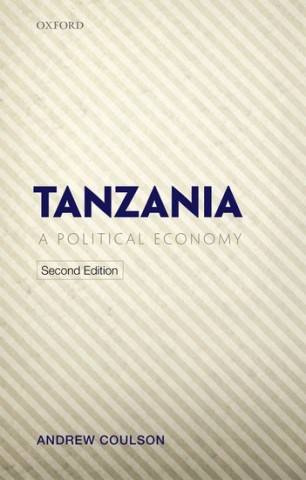Edwards wrote about Tanzania in 2014, providing an external perspective, largely from purview of the World Bank. For an alternative perspective, readers can pick up Andrew Coulson's "Tanzania: A Political Economy" (1982), which he wrote from within, as a civil servant and academic in Tanzania. Coulson provides an introduction to Tanzania from the colonial period until 1980, attempting not to be "ether romantic or dismissive" about the nation (p. 25). The book is very readable, and accessible for undergraduate readers – particularly those with an interest in history (given the book was published 30+ years ago). It is also important for the different perspectives. A dominant opinion about Tanzania and its early socialist inclinations has developed, Coulson provides viewpoints and insight that are well worth revisiting.
What did the socialist inclinations in Tanzania include? Coulson neatly summarizes that for "some years after 1967, Tanzania was the country in Africa most noticeable committed to socialist principles. Nyerere became a world figure, a spokesman for the 'poorest of the poor', demanding a New International Economic Order that would give them a greater share of the world's wealth, and trying to ensure that the non-aligned countries acted as a trade union, merging some of their individual interests to campaign on a common programme" (p. 22). Coulson outlines the origins of Nyerere's approach to non-alignment and independence in international relations (e.g. p. 180-181), which set the nation on a unique path during the post-colonial period. At the same time, Coulson criticizes Nyerere, such as the authoritarian rule, and idealized and romantic assumptions that drove the African Socialism approach (e.g. p. 184, 285, 347, 377).
In contrast to many writers, Coulson says the villagization program "cannot be said to have failed – although it changed the face of Tanzania – for the achievements in the field of social services also have to be taken into account" (p. 308). Speaking about international relations, and specifically the choices and actions of the international donor community, he writes "it would be a rash analyst who thought that a single theory would explain the behaviour of all the governments involved" (p. 367) – although Edwards cites Coulson, he seems to have missed this point.
There are many interesting side notes for readers studying history and development, such as the increase of tsetse due to colonial activity (p. 56), the German use of Swahili and advancement of a national language that was not a colonial one (p. 70), and education as "the most powerful weapon in the battle for the minds of the colonized" (p. 123). On the underlying paradigms, Coulson writes "all the institutional policies…were justified by an appeal to modernization theory. The view that peasants are primitive, backward, stupid – and generally inferior human beings – dominates the rural chapters of both the 1961 World Bank report and the Tanganyikan First Five-Year Plan" (p. 199).
An area of particular interest to Coulson is agriculture. Given the book was published in 1980, he offered some sharp criticism of agricultural extension, which (unfortunately) continue to be applicable. For example: "Farmers who refused to accept 'modern methods' were described as stubborn, lazy, ignorant, conservative, uncooperative, etc. There was little or no recognition that logic often lay in the refusal to do what the extension staff advised" (p. 85). Furthermore, "many studies found that much of the advice given by extension workers was not appropriate to small farmers. The clearest case of this was inter-cropping. Extension workers were trying (with little success) to persuade farmers to plant their crops in pure strands" (p. 192). He also points to studies showing that extension workers provided services to richer farmers, not equally, not the most in need of support (p. 191).

